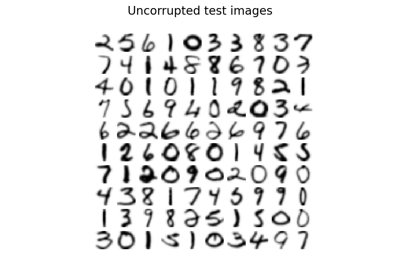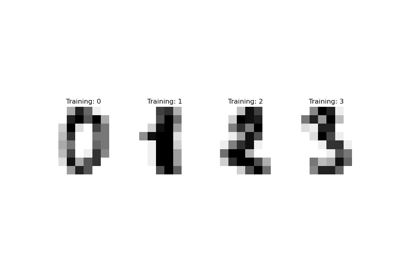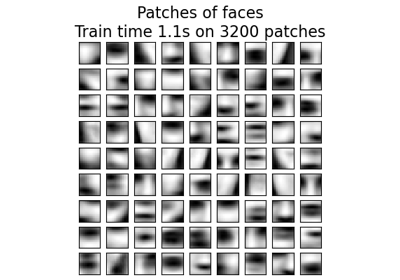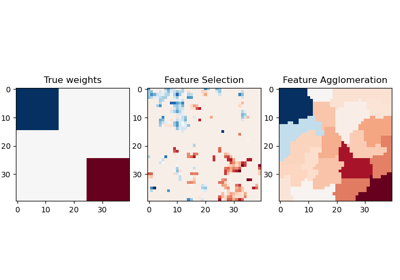Note
Go to the end to download the full example code or to run this example in your browser via JupyterLite or Binder.
Feature agglomeration#
These images show how similar features are merged together using feature agglomeration.
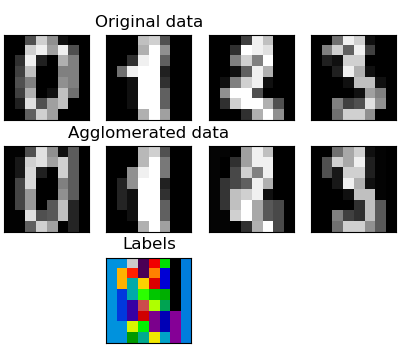
# Authors: The scikit-learn developers
# SPDX-License-Identifier: BSD-3-Clause
import matplotlib.pyplot as plt
import numpy as np
from sklearn import cluster, datasets
from sklearn.feature_extraction.image import grid_to_graph
digits = datasets.load_digits()
images = digits.images
X = np.reshape(images, (len(images), -1))
connectivity = grid_to_graph(*images[0].shape)
agglo = cluster.FeatureAgglomeration(connectivity=connectivity, n_clusters=32)
agglo.fit(X)
X_reduced = agglo.transform(X)
X_restored = agglo.inverse_transform(X_reduced)
images_restored = np.reshape(X_restored, images.shape)
plt.figure(1, figsize=(4, 3.5))
plt.clf()
plt.subplots_adjust(left=0.01, right=0.99, bottom=0.01, top=0.91)
for i in range(4):
plt.subplot(3, 4, i + 1)
plt.imshow(images[i], cmap=plt.cm.gray, vmax=16, interpolation="nearest")
plt.xticks(())
plt.yticks(())
if i == 1:
plt.title("Original data")
plt.subplot(3, 4, 4 + i + 1)
plt.imshow(images_restored[i], cmap=plt.cm.gray, vmax=16, interpolation="nearest")
if i == 1:
plt.title("Agglomerated data")
plt.xticks(())
plt.yticks(())
plt.subplot(3, 4, 10)
plt.imshow(
np.reshape(agglo.labels_, images[0].shape),
interpolation="nearest",
cmap=plt.cm.nipy_spectral,
)
plt.xticks(())
plt.yticks(())
plt.title("Labels")
plt.show()
Total running time of the script: (0 minutes 0.116 seconds)
Related examples
